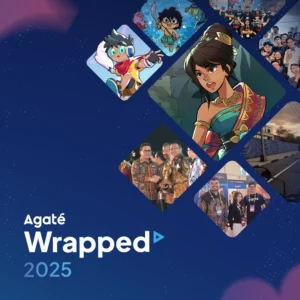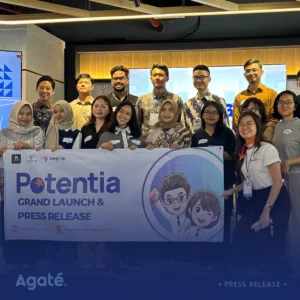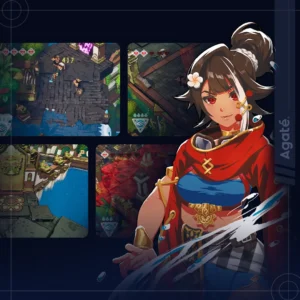
Netflix is one of the world’s most significant streaming applications, offering a wide range of content that hundreds of millions of people enjoy. After focusing on cinema and media for over a decade, Netflix has begun to enter the gaming industry. Many of Netflix’s games are based on their popular series, such as Stranger Things, Too Hot to Handle, and The Queen’s Gambit. Recently, the genres of games they publish have become more diverse, incorporating other popular Intellectual Properties (IPs) like Shovel Knight, Sonic, Transformers, and more as they recently bought several game studios.
Netflix’s initiatives demonstrate the gaming industry’s enduring allure and promising prospects. While history offers cautionary tales of prominent companies like Google, whose ambitious move into gaming with Stadia fell short of expectations, Netflix is approaching this domain with a measured and thoughtful strategy. Drawing valuable lessons from these past experiences, Netflix’s current move into gaming reflects a calculated and deliberate approach. This cautious stance is evident in their meticulous planning, as they leverage their vast content and user base to create a seamless transition into gaming. By carefully avoiding the pitfalls that befell previous entrants, Netflix aims to capitalize on the industry’s potential for sustained expansion while offering its subscribers an innovative and integrated entertainment experience that seamlessly blends video streaming and gaming.
Challenges for Netflix in the Gaming Industry
One of the challenges Netflix faces is that players must download the games the platform offers from either the App Store or Google Play before playing. The company wants to keep users’ gaming activities within the Netflix app. To achieve this, they are exploring the potential of cloud gaming technology as a viable solution. With cloud gaming technology, Netflix customers can play Netflix-made games on smartphones, websites, or TVs without downloading the actual games. This method has been tried in the Apple ecosystem, where players need to download a controller app from the App Store, and then they can play the games on the TV with the smartphone acting as the controller.
Despite its potential, the concept of cloud gaming technology has encountered a less-than-enthusiastic reception thus far, a fact exemplified by the setbacks suffered by Google during its efforts to establish Google Stadia as a dominant player in this field. The main problem cloud gaming enthusiasts face lies in the intricate web of internet infrastructure, which significantly impacts the aspects of latency and visual fidelity. The success of cloud gaming heavily hinges on a robust and stable connection, a demand that is only sometimes met due to variations in network speeds and reliability.
Unlike the heavyweights of the gaming world that demand substantial data transfers, Netflix has strategically chosen to focus on lightweight gaming experiences. This deliberate decision sidesteps the formidable data transmission requirements typically associated with AAA games, thus potentially diminishing the impact of internet limitations on the overall user experience.
Transmedia Storytelling
Currently, Netflix has a portfolio of immensely popular IPs that have captured the hearts of countless enthusiasts. This positions Netflix in a unique position to harness the potential of these cherished IPs through the avenue of transmedia storytelling. Transmedia storytelling is an art form that encompasses realms such as literature, cinema, television, and, notably, video games. It serves as a compelling strategy for extending the richness of a narrative beyond its original boundaries.
While the concept of transmedia storytelling is not entirely novel, its prominence has escalated significantly, thanks in part to groundbreaking series like the futuristic cyberpunk epic “Edgerunner” and the immersive video game counterpart “Cyberpunk 2077.” Another shining example of this approach is evident in the captivating series “Arcane,” which elegantly unfolds within the universe of the popular video game “League of Legends.” This masterful synergy between television and gaming expands the game’s lore. It presents audiences with an enriched understanding of the characters, settings, and intricate narratives that collectively shape this detailed universe.
The potential for further transmedia exploration is boundless. By traversing the boundaries between various media forms, Netflix can offer audiences a comprehensive and multi-dimensional narrative experience that transcends traditional storytelling confines. In doing so, Netflix pays homage to the age-old art of storytelling and pioneers an innovative pathway toward deeper, more immersive connections between creators and consumers across the dynamic spectrum of entertainment.
By adopting transmedia storytelling, individuals can effectively relish an IP through a range of mediums, and the integration of video games heightens players’ engagement with the story’s intricately crafted world. Being one of Indonesia’s leading game developers, Agate has honed its expertise in producing games that intricately tie into the fabric of transmedia narratives. A case in point is their productive collaboration with well-loved Indonesian IPs such as Dilan and Mariposa that you can play in Memories.
Are you looking for co-development, art services, or game porting? Look no further than Agate!
Don’t hesitate to get in touch with us today and learn more about how we can help you take your project to exceptional heights.






